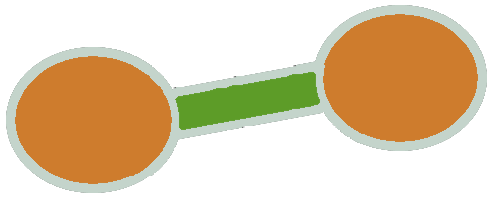Ninatoka
 bacteria
bacteriaBifido bacteria
Bifidobacteria are members of the intestinal microbiota of mammals and other animals, and some strains are able to exert health-promoting effects. The genus Bifidobacterium belongs to the Actinobacteria phylum. Firmicutes, Bacteroidetes, and Actinobacteria constitute the most abundant phyla in the human intestinal microbiota, Firmicutes and Bacteroidetes being predominant in adults, and Actinobacteria in breast-fed infants, where bifidobacteria can reach levels higher than 90% of the total bacterial population. They are among the first microbial colonizers of the intestines of newborns, and play key roles in the development of their physiology, including maturation of the immune system and use of dietary components. Indeed, some nutrients, such as human milk oligosaccharides, are important drivers of bifidobacterial development. Some Bifidobacterium strains are considered probiotic microorganisms because of their beneficial effects, and they have been included as bioactive ingredients in functional foods, mainly dairy products, as well as in food supplements and pharma products, alone, or together with, other microbes or microbial substrates. Well-documented scientific evidence of their activities is currently available for bifidobacteria-containing preparations in some intestinal and extraintestinal pathologies. In this review, we focus on the role of bifidobacteria as members of the human intestinal microbiota and their use as probiotics in the prevention and treatment of disease.
Ref:
Hidalgo-Cantabrana C, Delgado S, Ruiz L, Ruas-Madiedo P, Sánchez B, Margolles A. Bifidobacteria and Their Health-Promoting Effects. Microbiol Spectr. 2017 Jun;5(3). doi: 10.1128/microbiolspec.BAD-0010-2016. PMID: 28643627.
Join Ninatoka!!
NinatoKa's goal is to support you as a therapist in unravelling the illness pathway from symptoms to cause, and to help you detect potential interventions.
Go to Explore to start your discovery!
Go to Learn to scroll through newly added data.
Go to Contribute to contribute to the Ninatoka database.
You can rate content up or down and add comments if you agree or disagree.



